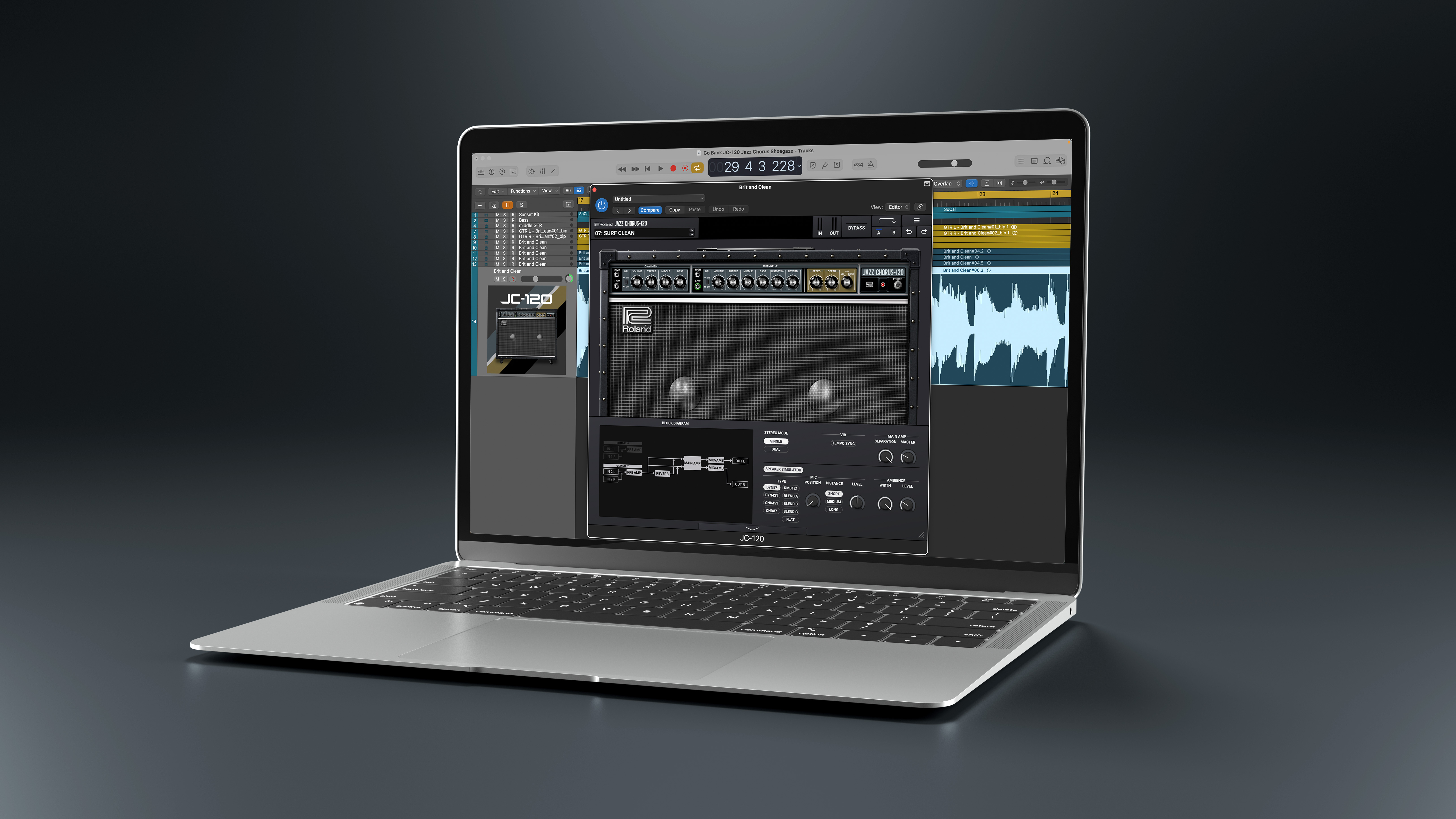“I had to say ‘No, guys I swear we’re a real band’”: South Arcade on how they became the figureheads of a growing Y2K revival
From trending on TikTok to sparking a retro renaissance, South Arcade explain why they want to wind the clock back to 2005
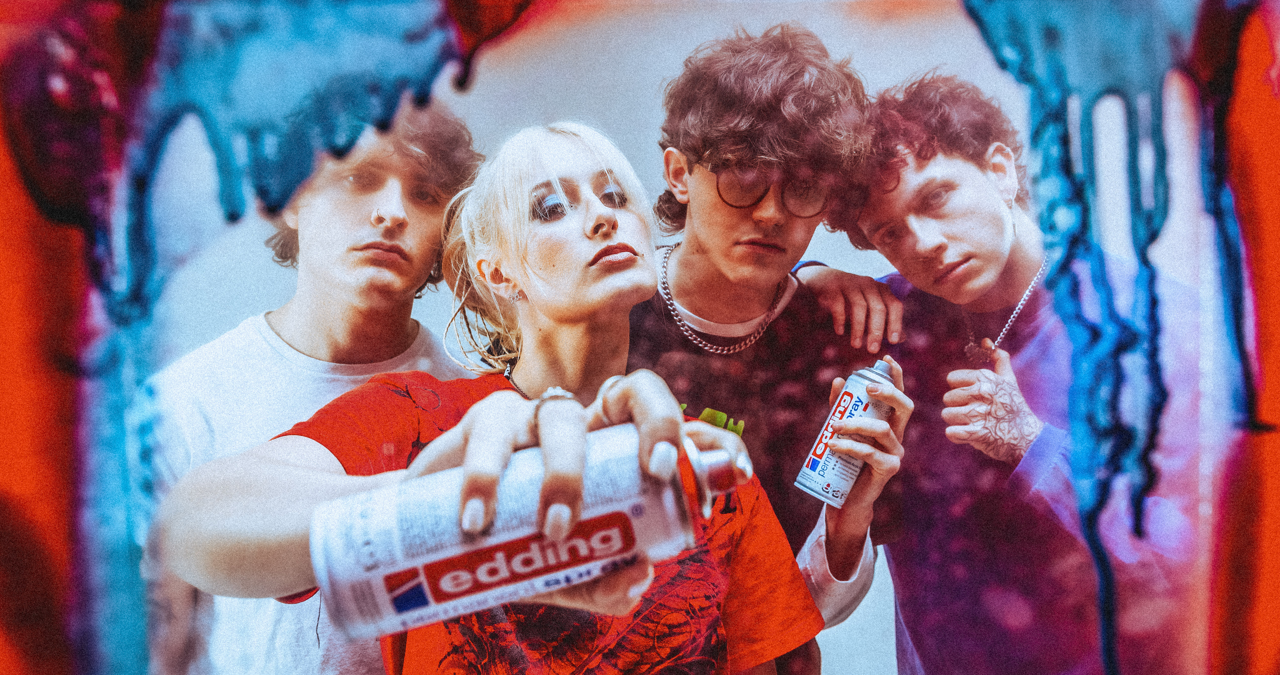
Fusing sledgehammer nu-metal riffs with the communal euphoria of classic pop punk, South Arcade have honed a sound that will immediately make some wildly nostalgic. And, for those who didn’t live through the early 2000s, their colourful, carefree universe serves as a soothing balm to the chaos of the 2025 news cycle.
But the band - formed following the pandemic at university in Guildford (UK) - have seized upon a modern, TikTok-angled strategy to garner attention.
Filming their regular band practice antics, South Arcade are keen to use the tools of the now to bring the sound of a time well before the web’s domination of our lives to the masses.
It seems to have worked. If their 11.1 million TikTok likes are anything to go by.
With a growing fan-base (both young and old), South Arcade have caused something of a ripple. With the constant barrage of negative news, many are unsurprisingly keen to return to (or long to have been born early enough to experience) the relative simplicity of the early 2000s.
"We got you" the band regularly state.
Beyond their aesthetics, there’s the music - and it’s hugely infectious.
From the mammoth chorus of How 2 Get Away With Murder, the immaculate Unaware and the bouncy, weekend-down-the-skatepark banger, Stone Cold Summer. The band demonstrate a reliable penchant for the stickiest of hooks.
The four members - vocalist Harmony Cavelle, guitarist Harry Winks, bassist Ollie Green and drummer Cody Jones - are making impressive strides in their ambition to revive a cultural moment.
We spoke to the band (sans guitarist Harry) to find out more about their journey.
MusicRadar: Hi all, thanks for speaking to us today. First question - how did you all meet?
Ollie Green: "Harry and Harmony knew each other, they’d been writing in lockdown together.
"They wanted to sort of make [what they were doing] more of a band, I guess. Cody joined on drums soon after.
"I saw an ad in the university newsletter saying they were looking for a bassist, and so I went to audition. I expected it to be a rehearsal studio but it wasn’t quite what I expected…"
Get the MusicRadar Newsletter
Want all the hottest music and gear news, reviews, deals, features and more, direct to your inbox? Sign up here.
MR: So was that audition the first time that you had met everybody?
OG: "I'd met Cody a few times. I'd met Harry once or twice, but just in passing at university.
"Anyway, I rocked up to Harry's uni house, and he just answered the door.
"I was a bit confused at this point. I ended up sitting in his bedroom. Cody and Harmony were sat on his bed and Harry was in a swivel chair. I was on the smallest stool with a rickety leg. I just remember Harry swivelling round on the chair and asking ‘what can you bring to the band?’
" So, I must have yapped for a good twenty minutes, and blagged my way in."
MR: Was that Y2K/early 2000s aesthetic a shared reference point for you all from the outset?
Harmony Cavelle: "That actually came a little bit later. When we decided to do this band thing properly, we lived with each other in our uni town for a year (Guildford) - just getting to know each other.
"[My attitude was] let’s be bold, and have no plan B. Let’s just lock-in and live and work together every day.
"Then after that, [things got] too expensive. [We wanted] to do music but had to pay rent. We were fortunate enough that I could ask my parents ‘how would you feel if the whole band came and lived at ours for a bit so we can lock in properly and do this for a little bit longer?’
"They were actually chill about that - so every room that wasn’t a bedroom in my old family home was turned into a bedroom basically."
OG: "It was a bit like a uni house."
HC: "But going back to the question about sound - it’s interesting because we all come from different backgrounds that we appreciate when writing the songs.
"Cody is more into like nu-metal and heavier stuff, Ollie is sort of like our more indie guy, and I’m kind of more into that rap kind of aspect. Harry’s more into traditional rock.
"So, we had to come together and decide how we were going to do this stuff? As we [worked more on the sound] we realised that all our key influences were popular in the 2000s.
"We saw it as a bit of a palette - we took a bit of this, and a bit of that and basically found out that the 2000s is where we really thrive."
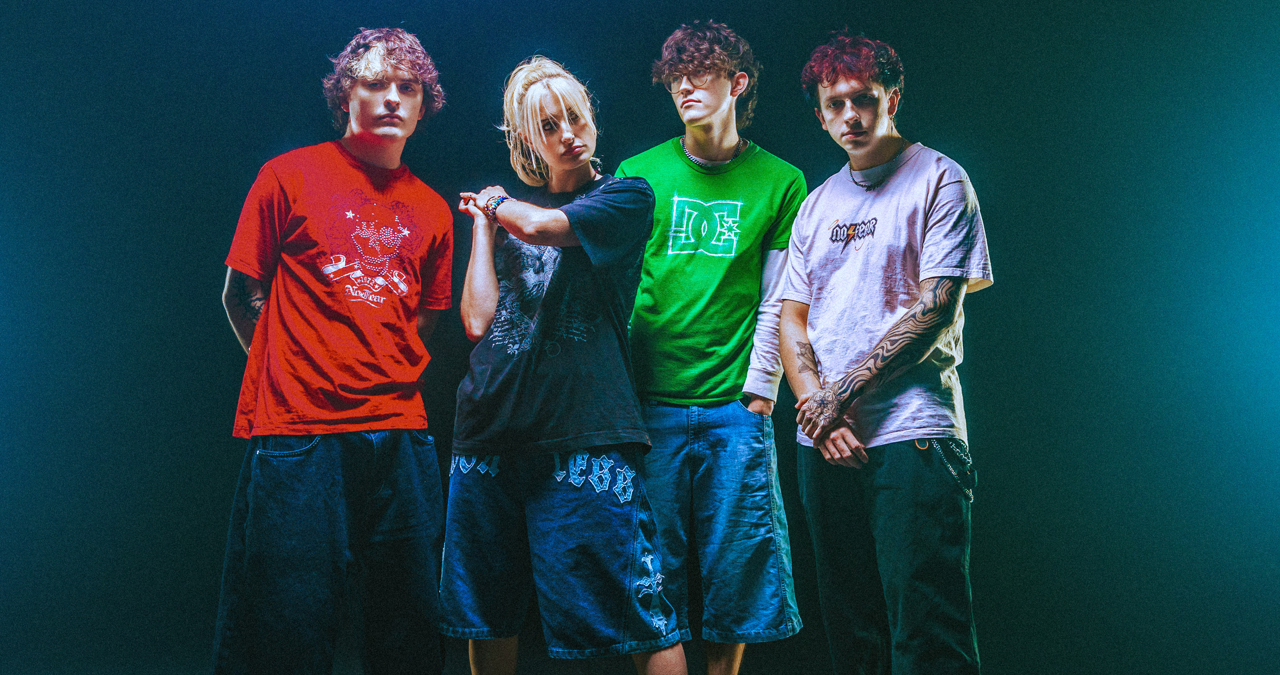
MR: Can you recall the first song you wrote where everything synergised and the South Arcade sound was born?
HC: "I think for me it was when we wrote the first track of our latest EP (2005) which was Nepo Baby.
"I feel like we were getting nearer to that though, and we had the Unaware music video which was really 2000s.
"Music videos are so great for being able to paint a picture of just what your band is, and what you’re trying to get across."
MR: Unaware certainly had a far more poppier sound, whereas the newer stuff sound a lot more riff-heavy…
HC: "It is yeah, we had a track called Danger where we thought ‘hmm, people might not get it’.
"It was a heavy one, and quite a bold move. It had more success a year after its release. If we all agree on a sound - even though we all listen to different stuff - but we all like it, then the song can stay. That was the teething process."
OG: "We were dabbling when we did Danger, and we thought ‘well we like that, but maybe it was just us’. Then we dabbled in the Unaware, clean-cut, classic feel-good track - a world away from Danger.
"To us though, it didn’t feel a world away because it was still under the 2000s umbrella. Then a year later [we swung back around]."
MR: It is interesting how you can go neatly from the poppier side into that more abrasive side without sounding like a different band
HC: "It’s fun, especially live - how we can have those heavier songs. I think at least if there’s a ‘pop’ vocal. Being able to play heavy indie pop songs and heavy nu-metal songs in the same set would be whack for some artists. But it means we don’t get bored!"
MR: You mentioned the track Nepo Baby on your EP which was certainly a standout. It also it seemed like a bit of a comment on privilege in the industry. Is that something you've experienced yourself?
HC: "There’s a similar theme in our new track Supermodels. We don’t take ourselves very seriously, so everything we do is sort of tongue-in-cheek. But the hard thing for us is having to do ‘this thing’ called social media.
"It’s a tough balance to get people and influencers to ‘legitimise’ us. I had to say ‘No, guys I swear we’re a real band. Come to a show and check us out’.
OG: "It was kind of ironic, because people started labelling us ‘industry plants’. So it was a bit of a tongue in cheek response to that. We were like ‘what are you talking about?’
"We obviously know who were are and what we’re like - so we just kind of put that into a song."
Cody Jones: We’ve had to prove ourselves - that we’re not just a ‘TikTok’ thing.
MR: TikTok was a big part of your rise though - and some of the biggest videos on your TikTok are you guys rehearsing and demonstrating your musical chops.
HC: "Those have helped massively actually - people have realised that we are a [legitimate] band.
"It can be so draining to be thinking about social media when you really want to focus on that creative side. We were just doing these band practices every week (as we always do), and we just thought, let’s just set the phones up and see what happens. People resonated with that. A lot of people never get to see behind the scenes."
OG: "You take band practices for granted, but the vast majority of people haven’t set foot in a band's band practice. I don’t know if it’s a British thing, but trying to make each other laugh is kind of our default communication. Three hours of trying to crack the other one."
CJ: "Ollie is always trying to do stuff with Harry’s guitar. Plugging him in and turning him off and stuff."
OG: "Some of it’s even more subtle than that - it can be just pulling faces at each other. That’s the thing - you sort of forget about them as well. It’s only the magic of recording it that you can re-watch and think ‘oh that’s actually quite funny’. That’s sort of how [a big part of our TikTok strategy] was born.
MR: A lot of people have discovered you via TikTok as their first port of call. One of the things we noticed was the ‘Don’t worry, we got you’ series where various 2000s artists are pictured, leading up to you guys at the end. That’s a really cool way to hook potential listeners in - sort of stating ‘we are this generation's version of that’
OG: "I think it helps to give people a reference point, a jump-off point. A bit like ‘For fans of’. We’ve found that people at our gigs who are 14, were born after the artists we’re referencing.
"We’re doing it for those people who like that music, but didn’t have the chance to see those bands [in their heyday]."
@southarcade ♬ DANGER - South Arcade
MR: There’s also that carefree nostalgia for a time that - as the world gets increasingly more depressing - things felt a bit more a brighter, and more optimistic. Why do you think people warm to that era?
HC: "That’s like a major thing for us. I’ve said it before it’s that whole escapism thing - and not being too serious thing. With all the chaos of 2025, we just want to bring that escapism.
"We can have a good time right here right now. Our audience really spans from these 14 year-old kids who are seeing a real band for the first time, to people who really were in those eras, and they enjoy it for that nostalgic thing."
MR: Typically how does a South Arcade song start?
HC: "It’s funny, everything we do is recorded in Harry’s bedroom. Always has been and probably always will be.
"The thing we outside track is Cody’s drums. I normally end up using his wardrobe a vocal booth with a duvet over my head. But usually it starts with Harry. He’s literally glued to his laptop. He’ll cook up a few ideas in a week - maybe something like ten ideas. He’ll play them to me and I might like just one section of one of them. Then it goes through this filtration process.
"If I really like the song, I might start imagining what the music video or cover art would look like. Just from hearing a bit of it.
"Then I think ‘yeah, that’s the one’. Then I’ll sing some random words over it. Then we’ll get Ollie and Cody in. We then make it into a real song. It has to also sound good stripped back - just on piano. If it sounds good there then we [know it’s] quite strong. It’s like a proper production line."
MR: There’s been a lot of conversation about how bands are kind of forced to live in a world of metrics and analytics to plan their next moves these days - is that something you can understand from your own experiences?
OG: "In terms of [stats like] ‘who’s listening where’ - that’s an important one because for us it’s a good sign [and indicator] of any fans we haven’t met yet.
"Some stats are really helpful. 20 years ago in the actual 2000s you wouldn’t have known that stuff. Like we’ve got fans in Australia but we wouldn’t have known that back then. We can then aim to go out and meet those people.
"There’s other stats that can make you really over-analyse. For us, it's simply if we like it, that tends to be the only check on the check-list. But you have to try to be mindful of other stuff if you can.
"There was a time when we were really over-analysing stuff, before TikTok and the first few singles took off.
"We took it as a sign - not that I believe in much of that - but when we stopped analysing all the numbers, and started just making stuff we really liked, that was when the rewards started."
HC: "It boiled down to the more we deep-dove, the more it ruined the vibe. Like, even if [a track] doesn’t perform the way you want it to, at least you like it."
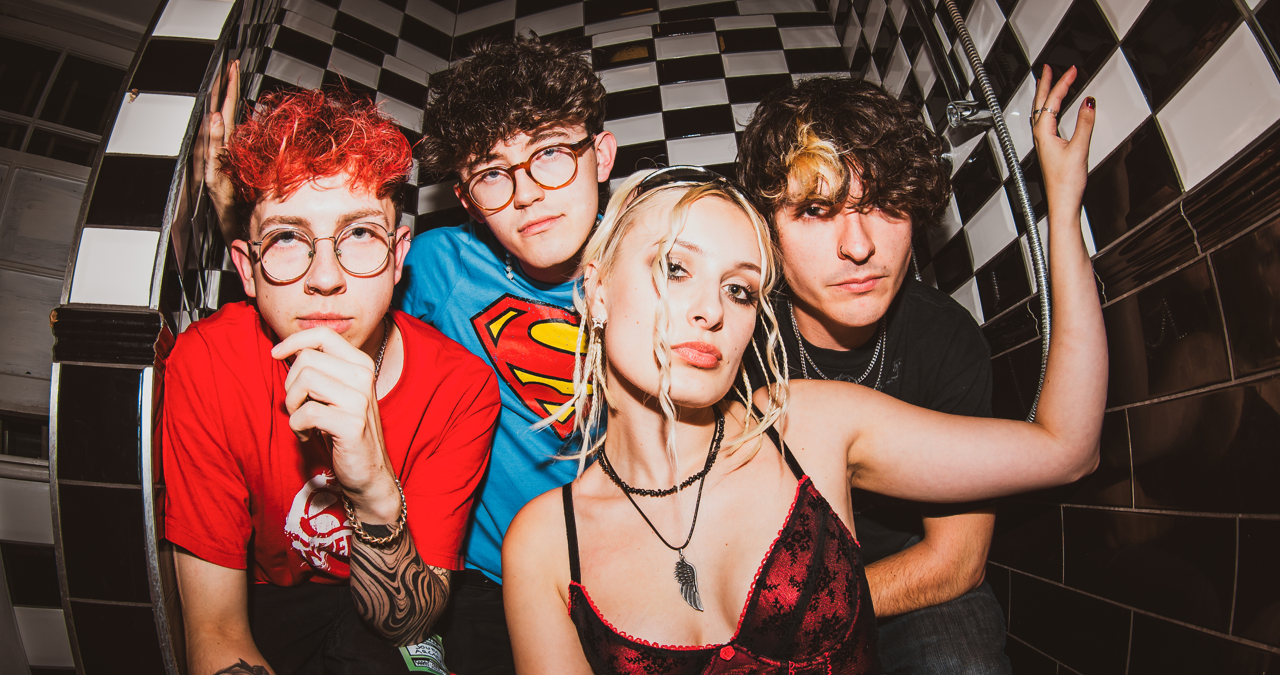
MR: How did you guys get signed to LAB Records?
OG: "Well, we toured with Dead Pony, and that was their label.
CJ: "We wanted to put an EP together as we’d been doing the singles thing, we did want to get it to a point where we could make an EP. Mark at LAB seemed quite charming and we thought ‘why the hell not’."
OG: "Stuff like the music videos helped us to make a bit of a ‘world’, with the visuals and stuff. That was a big motivating factor for us. To push what we were doing a little bit further."
MR: We love the 2005 video. The era-specific homages and the Apple iPod ad reference in particular had us smiling
OG: "It’s funny, because Apple now comes up as the sponsored ad. I don’t know if we’re meant to have done that!"
MR: Did you have a bank of songs you wanted to get on that EP? Or were they all fresh?
HC: "When you try and revisit stuff that’s too old, you’re not excited about it any more. We just want to be putting out stuff that we like [in that moment]. It’s been a very hot off-the-mark system of write it then release it.
"It’s maybe not a long-lasting process, especially when we get to albums and stuff, but it’s working for us at the minute. I think we really enjoy that on-the-pulse sort of thing."
MR: So does that mean the first album is coming soon?
OG: "I think we want to do at least one more EP. We want to get the world fully crystallised."
HC: "We’re still making the world. Supermodel has the dance thing, Riptide has that Linkin Park thing. Right now I feel like we’re going round with a big catching net, trying to find who is resonating with this sound. We can experiment with all these areas we’ve not tapped into yet. Then, after the next EP, we’ll really know what the South Arcade sound is."
OG: "I personally think that you only get your debut album once, you want to absolutely get it right. Part of the fun is the journey towards it. We love releasing as frequently as we do, and trying out all these things.
"Our fans know they don’t have to wait too long before something new. But absolutely. The first album is on the horizon."
MR: What do you guys prefer - playing live or being in the studio?
CJ: "Got to be playing live."
OG: "As long as the gig goes smoothly…
"But you can’t have one without the other. Playing live you get a more instant reward. When you’re writing a song there’s a longer delay."
HC: "We’re really passionate about our live shows and how we want people to feel at a gig."
MR: In terms of your fans, are people regularly showing up wearing that sort of stylised Y2K get-up?
HC: "Yeah and it’s so fun. A lot of band’s fans have a distinct style of dress.
"I want to be able to walk through London and see someone and think ‘I bet that’s a South Arcade listener’. That would be cool, if we could get to that point.
"It’s the whole world-building thing. I think it is really cool. But yeah, I get jealous of people’s outfits!"
MR: Which of your tracks are your favourites to play live?
OG: "I love Stone Cold Summer but Harry hates it because it’s the fastest thing ever known to man on the guitar. For me it’s easy though."
HC: "My current one is Riptide."
CJ: "Mine is How To Get Away With Murder."
MR: That’s a great track, and the animated video is fantastic. How did that animation idea come about?
HC: "We really wanted that Scott Pilgrim-esque, animated style. We’d seen this guy’s work online - a chap named Brendan Maker - and reached out to him and he was, like, so up for it.
"He really got behind the concept and, like, nailed it.
"In a week or two he’d managed to do that whole thing. It was like right up to the mark, bless him. Doing hand-drawing and stuff. But the final product we’re really happy with."
MR: Finally, what advice would you give to any young bands reading on how to navigate the modern industry, perhaps a few rungs behind you on the ladder?
OG: "I feel like ‘get stuck in’ is my advice. It’s easy to talk yourself out of a lot of stuff.
"Truthfully, you sort of learn on the job, you get a feel. The more you do it - the better you get. Just make stuff you really, really like. That is literally, in my experience, all you can do. Don’t water it down for anyone else."
CJ: "The moment you lose faith in it is the moment it goes wrong. It’s the whole trust the process thing as Ollie was saying. It’s the whole idea that miners could be seconds away from a diamond but then they turn around.
"Crafting the art but also just not giving up on it. We started out as a very different band but we’ve crafted it into what it is now. It takes a bit of time, faith and trusting the other members of the band."
HC: "If you scroll all the way down our feeds there’s some embarrassing stuff on there. You can’t just emulate someone else’s journey, you have to make it your own thing. But you need to work at it every day and then you’ll always have something."
OG: "Another big thing is comparison. Comparison is the thief of joy. But you look at other bands but there’s a whole array of factors that make every single band different. Just try to focus on what you’re doing - cut through the noise and think about what you love doing."
South Arcade are touring the US from April 16th 2025 and will appear at the Reading Festival in the UK in August. For more info and to listen to more music, head over to the band's official website

I'm the Music-Making Editor of MusicRadar, and I am keen to explore the stories that affect all music-makers - whether they're just starting or are at an advanced level. I write, commission and edit content around the wider world of music creation, as well as penning deep-dives into the essentials of production, genre and theory. As the former editor of Computer Music, I aim to bring the same knowledge and experience that underpinned that magazine to the editorial I write, but I'm very eager to engage with new and emerging writers to cover the topics that resonate with them. My career has included editing MusicTech magazine and website, consulting on SEO/editorial practice and writing about music-making and listening for titles such as NME, Classic Pop, Audio Media International, Guitar.com and Uncut. When I'm not writing about music, I'm making it. I release tracks under the name ALP.
You must confirm your public display name before commenting
Please logout and then login again, you will then be prompted to enter your display name.





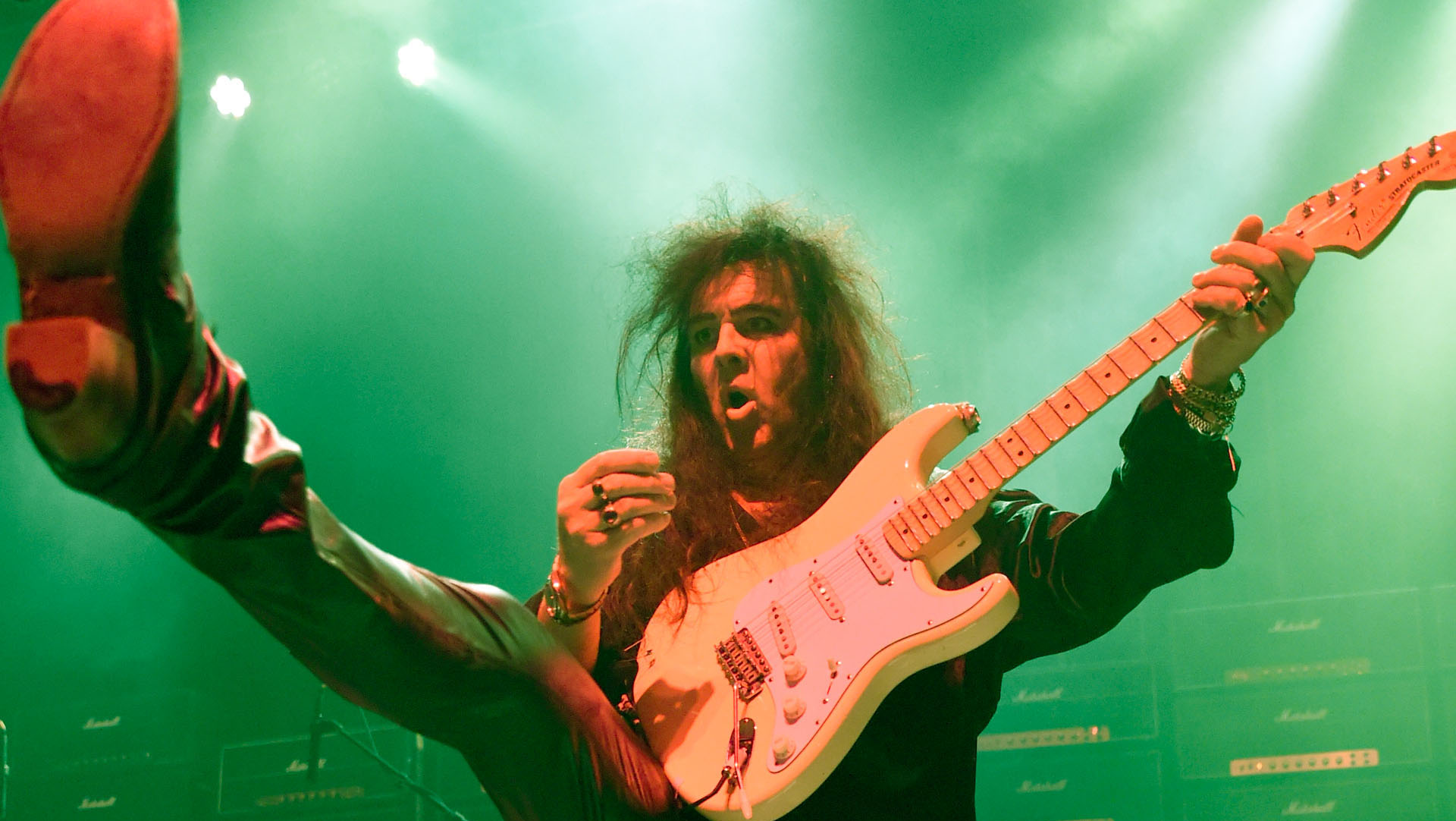
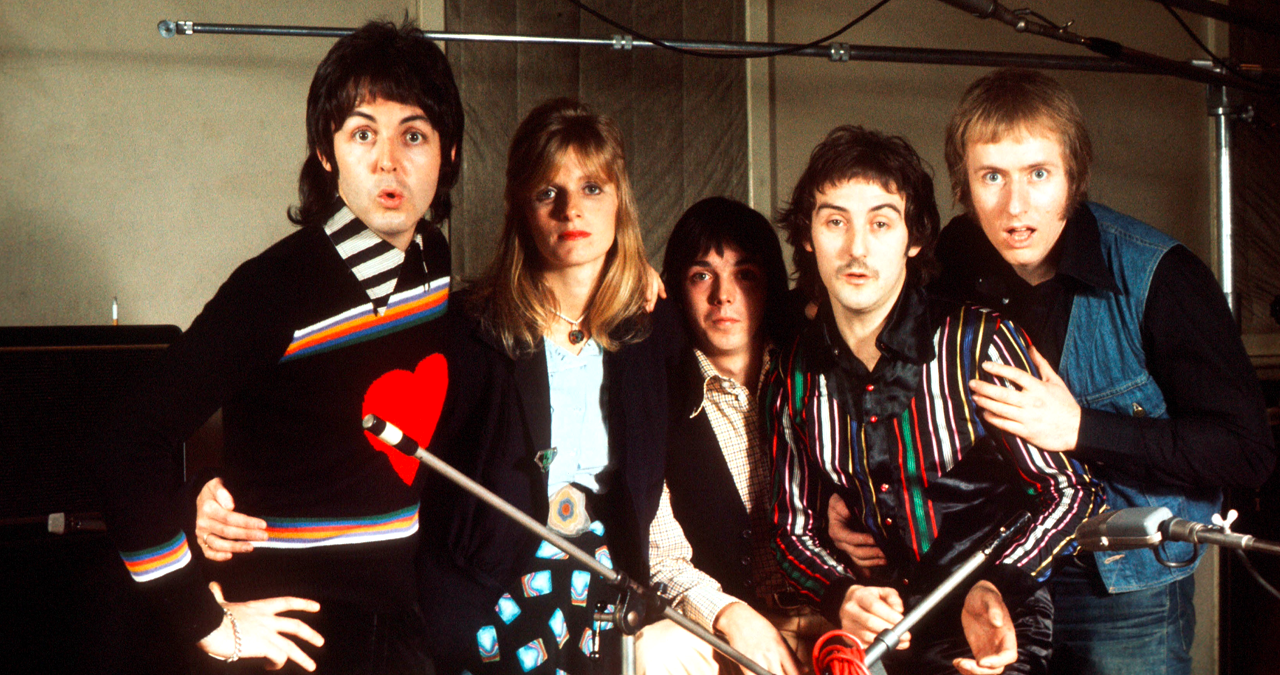
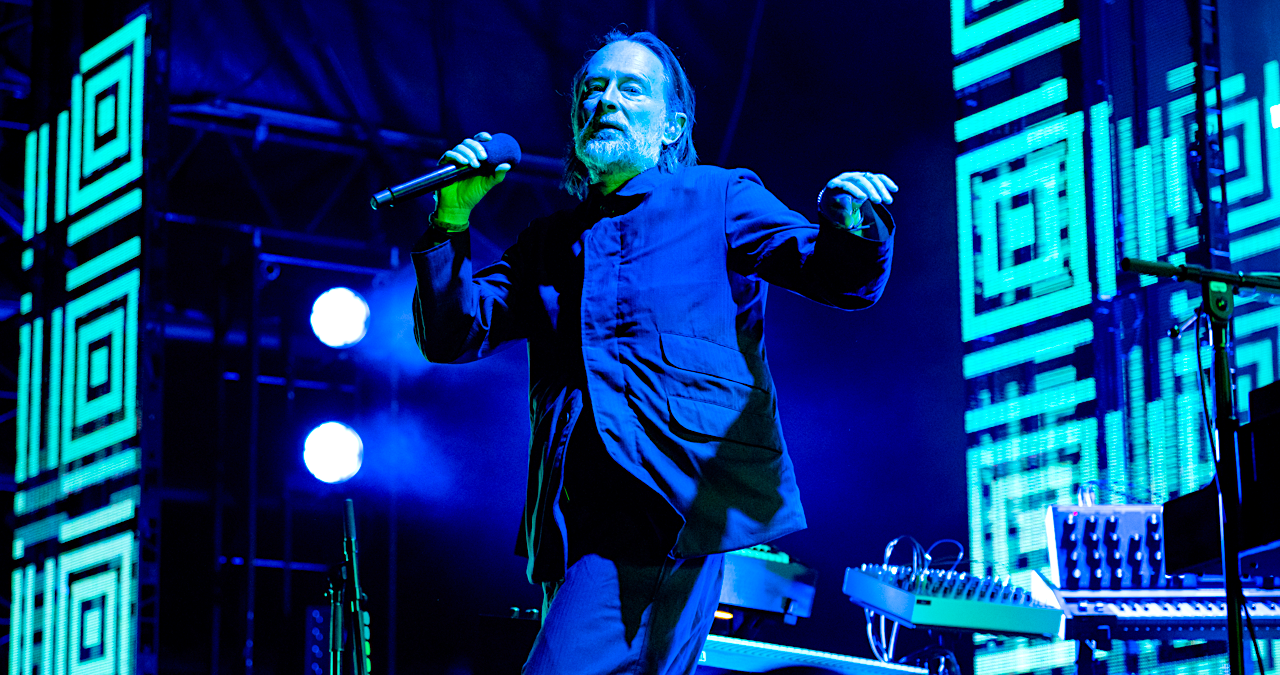
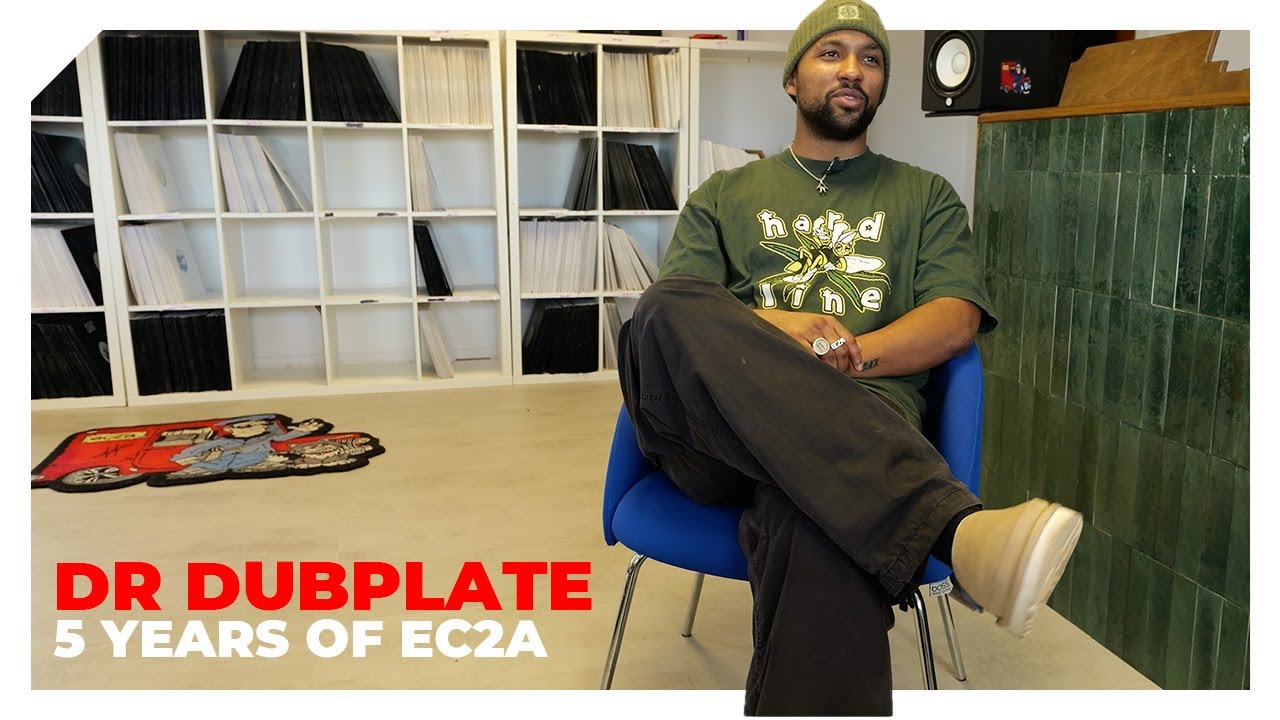
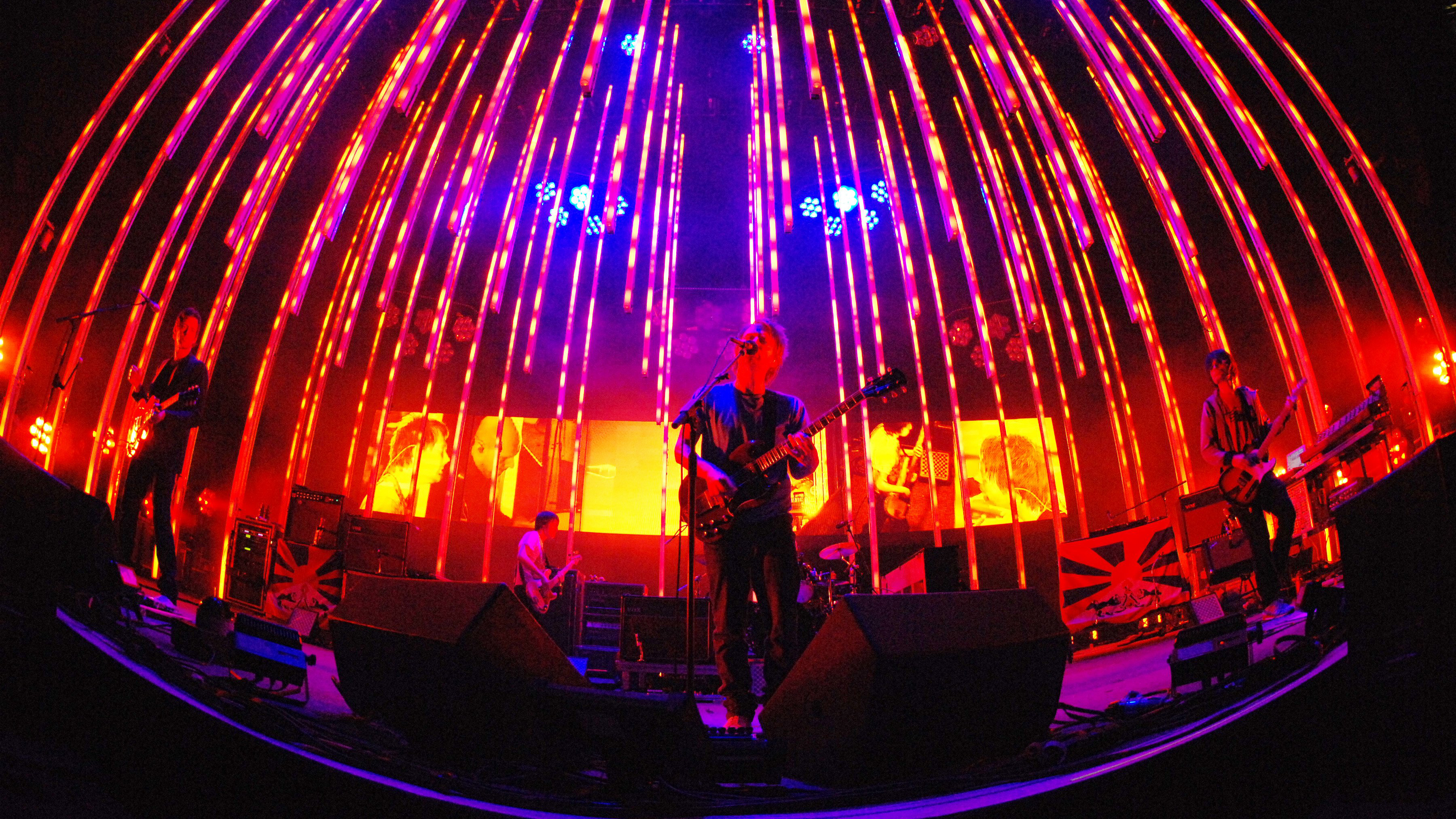
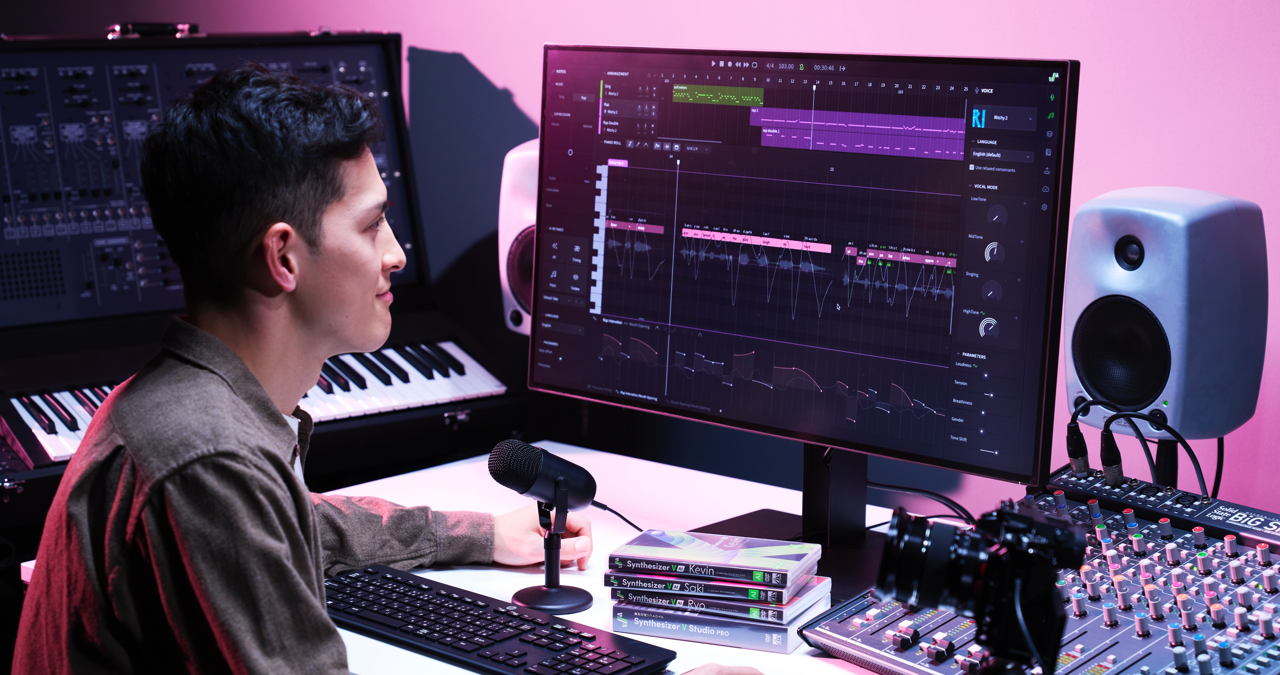
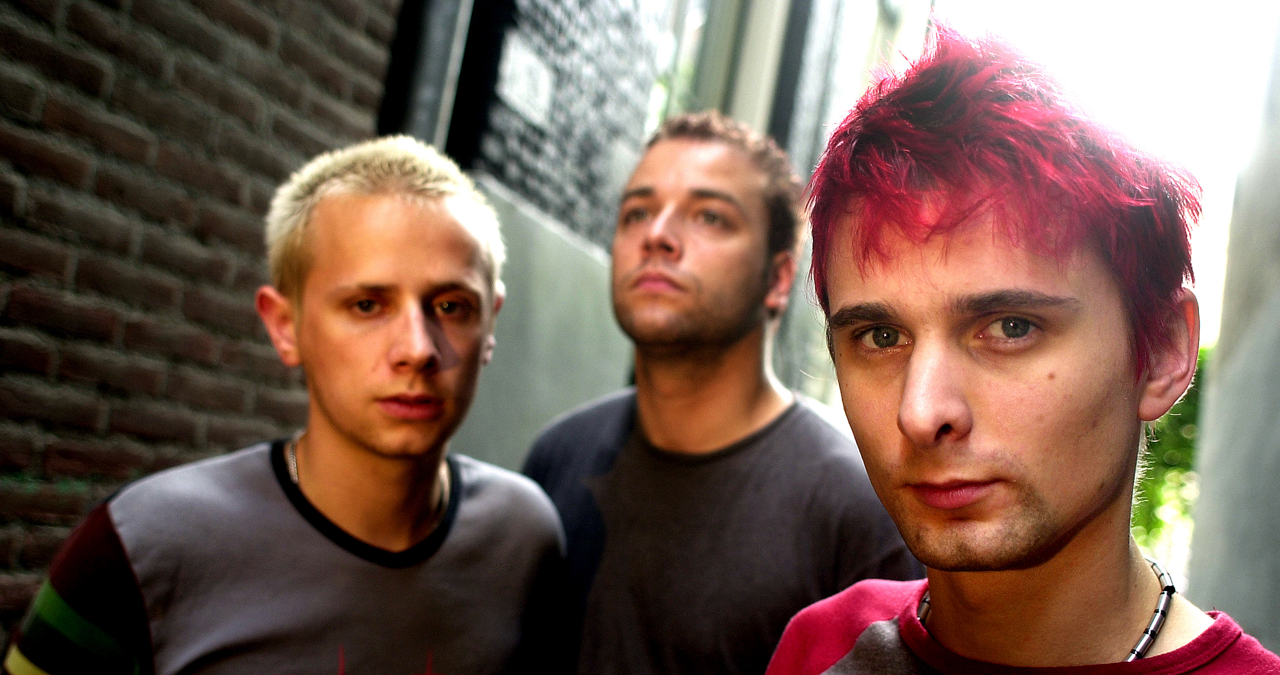
![James Hetfield [left] and Kirk Hammett harmonise solos as they perform live with Metallica in 1988. Hammett plays a Jackson Rhodes, Hetfield has his trusty white Explorer.](https://cdn.mos.cms.futurecdn.net/mpZgd7e7YSCLwb7LuqPpbi.jpg)
